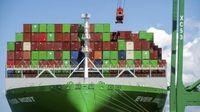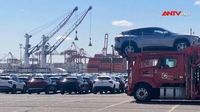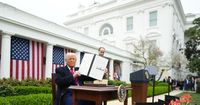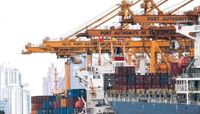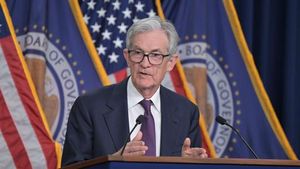In a dramatic escalation of trade tensions, the basic 10% retaliatory tax announced by US President Donald Trump took effect at 12:01 AM on April 5, 2025. US customs officials began collecting this tax at seaports, airports, and customs warehouses across the nation. Trump heralded this move as an "economic revolution," asserting that the US will emerge victorious in this trade war.
The new tax applies to all countries, but it is only the beginning. Higher retaliatory tariffs are set to take effect on April 9, 2025, with China facing a staggering 34% tax, Cambodia 49%, and Vietnam 46%. Such measures have sent shockwaves through global markets, prompting concerns about the potential for a full-blown trade war.
World leaders are scrambling to respond. The office of Israeli Prime Minister Benjamin Netanyahu announced plans for him to travel to Washington on April 6 to discuss a 17% retaliatory tax imposed on Israel. Meanwhile, Japanese Prime Minister Shigeru Ishiba is seeking a telephone conversation with Trump regarding a 24% tax on Japanese goods.
On April 5, British Prime Minister Keir Starmer and French President Emmanuel Macron expressed their mutual belief that a trade war would benefit no one. During a discussion on the ramifications of Trump's newly announced tariffs, Starmer emphasized his readiness to utilize industrial policy to protect British businesses, while also prioritizing a trade agreement with the US that could include tariff exemptions.
Italian Economy Minister Giancarlo Giorgetti warned that retaliatory tariffs against the US could inflict damage on both Italy and Europe. He stated that Italy is working to de-escalate tensions following Trump's imposition of a 20% retaliatory tax on the European Union.
In the private sector, billionaire entrepreneur Elon Musk voiced his hopes for a zero-tariff trade area between the US and Europe. Musk's comments came just three days after Trump announced the tariffs, which included a 20% tax on EU goods. He stated, "I hope Europe and the US can establish a closer and stronger partnership," reflecting a stark contrast to Trump's administration, which has often criticized Europe as taking advantage of the US.
As the situation unfolds, China has continued to condemn the US tariffs. On April 5, Chinese officials asserted that these measures violate the rules of the World Trade Organization (WTO) and threaten the stability of the global economic order. They characterized the tariffs as a form of economic bullying and vowed to protect their national interests.
In a reciprocal move, China implemented a 34% retaliatory tax on all US goods on April 4, matching the US's tariff on Chinese imports. They also restricted exports of certain rare earth minerals, which are critical for various high-tech industries.
Trump has been vocal about the impact of these tariffs, claiming that the negative repercussions for China will far outweigh those for the US. He stated on social media, "China and many other countries have treated the US very poorly, and the time has come for us to stand up for ourselves. We are no longer going to be the stupid and weak pillar of the world economy." His remarks reflect a broader strategy aimed at rebalancing trade relationships that he views as unfair.
Meanwhile, the US Customs and Border Protection Agency has issued a 51-day extension for goods loaded onto ships or in transit to the US before the new tariffs took effect. These goods must arrive by May 27, 2025, to avoid the 10% tax. The higher retaliatory tariffs, which range from 11% to 50%, are expected to start on April 9, further complicating international trade.
Despite the exemptions for 1,000 product categories, including pharmaceuticals and semiconductors, the US administration is considering additional tariffs on some of these items. This has raised concerns among businesses and trade partners about the potential for increased costs and disrupted supply chains.
The global economic landscape is shifting rapidly as countries assess their options in light of these new tariffs. Some nations are actively seeking negotiations with the US to mitigate the economic fallout, while others are preparing countermeasures. The next few weeks will be critical as leaders navigate this complex and evolving situation.
As the world watches, the repercussions of Trump's tariffs will likely be felt far beyond the borders of the US. With rising tensions, the potential for a trade war looms large, and the stakes have never been higher for global trade relations.
